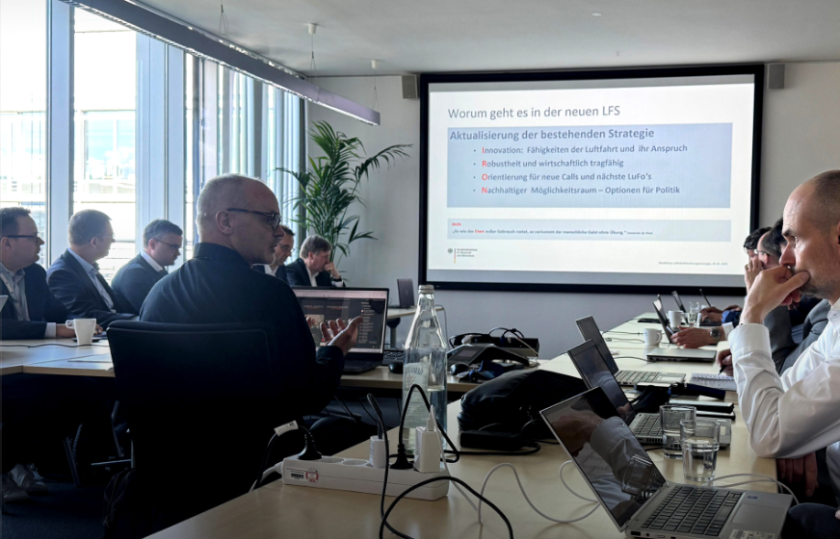Stakeholders from manned and unmanned aviation met at a workshop in Germany recently to discuss the specific design of a future aviation research strategy in order to take all essential areas of the aviation industry into account. Torsten Fiolka, responsible for research and education on the European Association for unmanned Aviation (UAV DACH) Board, and Oliver Lichtenstein, Deputy Chairman of the UAV DACH Board, attended the meeting at the German Aerospace Centre (DLR) in Bonn to represent the interests of the uncrewed and advanced aircraft industry in general and UAV DACH members in particular.
The workshop and the wider aviation research programme is part of the German government’s aviation strategy. DLR is the project management organisation and the Federal Ministry for Economic Affairs and Energy is funding basic research and application-related research for the development of innovative technologies.
UAV DACH has been intensively involved in discussions on the strategic orientation of the federal aviation strategy in general and the aviation research programme in particular in recent weeks. Under the leadership of Fiolka, ideas, suggestions and specific proposals were collected from the members of the association and incorporated into the planning and preparations of the Ministry and DLR.
At the recent workshop, Fiolka and Lichtenstein actively contributed to the discussions on important future topics for the industry, such as issues of airspace integration, fleet control (one-to-many, swarms of drones), automated flight planning and execution or the development of specific materials and production technologies. In addition, efforts were made to ensure that UAS and eVTOLs are given sufficient consideration in the aviation research strategy as independent modes of transport and pillars of a climate-friendly transformation of aviation as well as drivers of the digitalisation of air traffic.
The workshop follows a meeting in April, initiated by UAV DACH, where representatives from six European industry associations came together to exchange their views. The aim was to identify specific similarities and differences and to kick off a structured exchange between the associations. Delegations from the Global UTM Association, Drone Alliance Europe, Joint European Drone Associations, Alliance for new Mobility Europe, AeroSpace and Defence Industries Association of Europe and UAV DACH discussed whether and how they can regularly advocate for the creation of adequate framework conditions for the UAS/AAM industry in Europe with coordinated positions and joint demands in the future.
For more information




